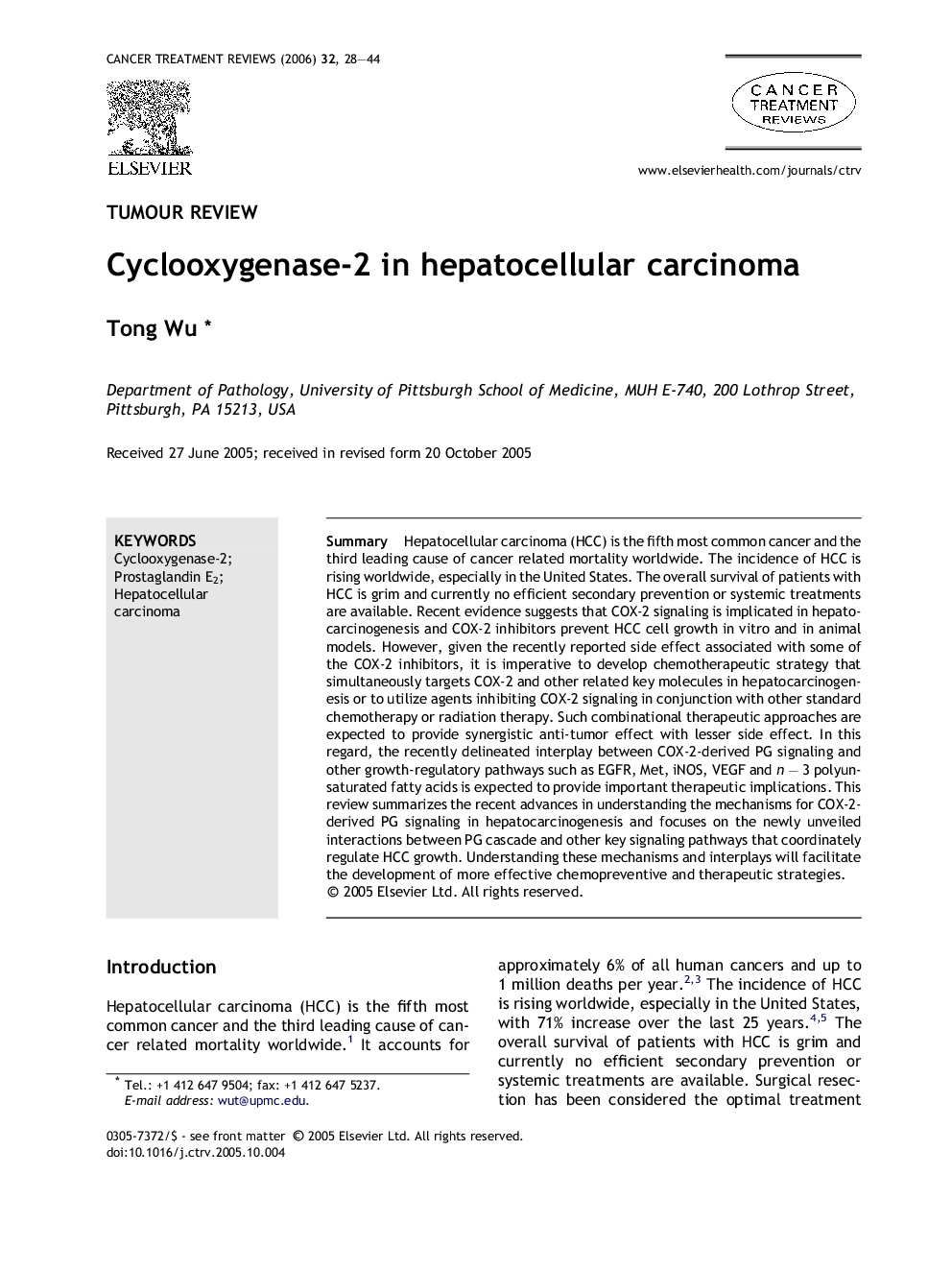| Article ID | Journal | Published Year | Pages | File Type |
|---|---|---|---|---|
| 3980626 | Cancer Treatment Reviews | 2006 | 17 Pages |
SummaryHepatocellular carcinoma (HCC) is the fifth most common cancer and the third leading cause of cancer related mortality worldwide. The incidence of HCC is rising worldwide, especially in the United States. The overall survival of patients with HCC is grim and currently no efficient secondary prevention or systemic treatments are available. Recent evidence suggests that COX-2 signaling is implicated in hepatocarcinogenesis and COX-2 inhibitors prevent HCC cell growth in vitro and in animal models. However, given the recently reported side effect associated with some of the COX-2 inhibitors, it is imperative to develop chemotherapeutic strategy that simultaneously targets COX-2 and other related key molecules in hepatocarcinogenesis or to utilize agents inhibiting COX-2 signaling in conjunction with other standard chemotherapy or radiation therapy. Such combinational therapeutic approaches are expected to provide synergistic anti-tumor effect with lesser side effect. In this regard, the recently delineated interplay between COX-2-derived PG signaling and other growth-regulatory pathways such as EGFR, Met, iNOS, VEGF and n − 3 polyunsaturated fatty acids is expected to provide important therapeutic implications. This review summarizes the recent advances in understanding the mechanisms for COX-2-derived PG signaling in hepatocarcinogenesis and focuses on the newly unveiled interactions between PG cascade and other key signaling pathways that coordinately regulate HCC growth. Understanding these mechanisms and interplays will facilitate the development of more effective chemopreventive and therapeutic strategies.
